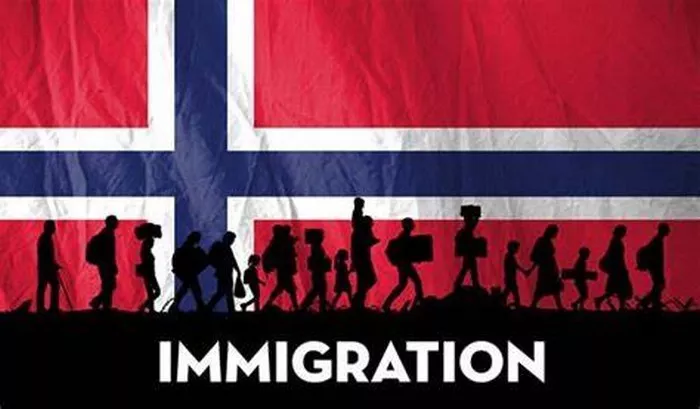Immigrating to a new country is a significant decision that requires careful planning and preparation. Norway, renowned for its high standard of living, progressive social policies, and stunning natural landscapes, is a popular destination for individuals seeking a new start. Whether you are drawn to Norway for its career opportunities, quality of life, or cultural richness, navigating the immigration process effectively is crucial to achieving your goal of living in this Scandinavian country.
This guide aims to provide a thorough overview of the various immigration pathways available in Norway, outlining the requirements, procedures, and essential considerations for prospective immigrants. From understanding the types of residence permits to practical tips on settling in, this article aims to equip you with the knowledge needed to embark on your journey to Norway with confidence.
Understanding Norway’s Immigration System
Norway, as a member of the European Economic Area (EEA) and a participant in the Schengen Agreement, has a relatively open immigration policy compared to many other countries. Citizens of EU/EEA countries enjoy freedom of movement and can reside and work in Norway without a residence permit. However, for non-EU/EEA nationals, obtaining the right to live and work in Norway generally requires obtaining a residence permit.
Types of Residence Permits
1. Work-related Immigration
Skilled Workers: Norway attracts skilled workers in various sectors, including IT, engineering, healthcare, and finance. To qualify, applicants typically need a job offer from a Norwegian employer that meets certain criteria.
Specialist Workers: This category includes individuals with specialized skills not readily available in Norway. The employer must demonstrate the need for such expertise.
Seasonal Workers: For seasonal jobs in sectors like agriculture, tourism, and hospitality.
Trainees and Interns: Programs designed for those seeking practical training in Norway.
2. Family Immigration
Spouse/Partner: If you have a spouse or partner who is a Norwegian citizen or holds a valid residence permit, you may apply for family reunification.
Children: Children under the age of 18 may be eligible to join their parents in Norway.
Parents: In certain cases, parents of Norwegian citizens or permanent residents may apply for family reunification.
3. Study-related Immigration
Students: Individuals accepted to study at a Norwegian educational institution can apply for a residence permit.
Researchers: Researchers and PhD students involved in research projects at Norwegian institutions are eligible for permits.
4. Humanitarian Immigration
Asylum Seekers and Refugees: Individuals fleeing persecution or serious harm in their home countries can seek asylum in Norway.
Steps to Immigrate to Norway
Step 1: Determine Your Eligibility
Before applying for a residence permit, assess which category applies to your situation. Check the Norwegian Directorate of Immigration (UDI) website or consult with a legal expert to ensure you meet the criteria and have the necessary documentation.
Step 2: Gather Required Documents
Compile all necessary documents, which typically include:
- Passport or other valid travel documents
- Proof of accommodation in Norway
- Health insurance
- Proof of sufficient financial means
Depending on the category, additional documents such as job contracts, marriage certificates, or university acceptance letters may be required.
Step 3: Application Process
Submit your application either online through UDI’s Application Portal or at a Norwegian foreign service mission (embassy or consulate) in your home country. Pay the application fee and attend any required interviews or biometric appointments.
Step 4: Waiting Period and Decision
After submitting your application, await a decision from UDI. Processing times vary depending on the type of permit and individual circumstances. Stay informed through UDI’s online portal or communication channels.
Step 5: Arrival in Norway
If your application is approved, you will receive a residence permit. Plan your move to Norway, arrange housing, and familiarize yourself with local regulations and services.
SEE ALSO: NAVIGATING THE COSTS OF IMMIGRATING TO THE UNITED STATES
Practical Considerations for New Immigrants
1. Housing
Finding suitable accommodation in Norway can be challenging, especially in major cities like Oslo and Bergen. Start your search early and consider renting initially to familiarize yourself with the area before committing to a purchase.
2. Healthcare
Norway has a public healthcare system that provides essential medical services to residents. Register with the Norwegian National Registry to access healthcare services.
3. Education
If you have school-age children, research local schools and understand the education system in Norway. Public education is free for children aged 6-16.
4. Language
While many Norwegians speak English fluently, learning Norwegian can greatly enhance your integration and job prospects. Language courses are available for immigrants through municipal programs.
5. Employment
Explore job opportunities through online job portals, networking, and industry-specific websites. Consider contacting recruitment agencies specializing in placements for foreigners.
6. Financial Management
Understand the cost of living in Norway and manage your finances accordingly. Familiarize yourself with Norwegian banking practices and taxation.
Cultural Adaptation and Integration
1. Social Customs and Etiquette
Norwegian society values punctuality, honesty, and respect for personal space. Familiarize yourself with cultural norms to facilitate smoother interactions.
2. Leisure and Recreation
Take advantage of Norway’s natural beauty by exploring outdoor activities such as hiking, skiing, and fishing. Engage with local communities through cultural events and festivals.
3. Social Networks
Build a social network by participating in local clubs, interest groups, or volunteer organizations. Networking can help you establish connections and feel more integrated.
Conclusion
Immigrating to Norway offers exciting opportunities for personal and professional growth in a progressive and scenic environment. By understanding the immigration process, preparing thoroughly, and embracing the cultural aspects of Norwegian society, you can pave the way for a successful transition. Whether you are drawn by Norway’s economic prospects, educational opportunities, or quality of life, careful planning and a positive attitude will contribute to a fulfilling experience in your new home.
Through perseverance and adaptation, immigrants can thrive in Norway’s inclusive society, contributing to its vibrant cultural tapestry while enjoying the benefits of living in one of Europe’s most attractive destinations. As you embark on this journey, remember to stay informed, remain resilient, and embrace the opportunities that await in your new Norwegian adventure.


